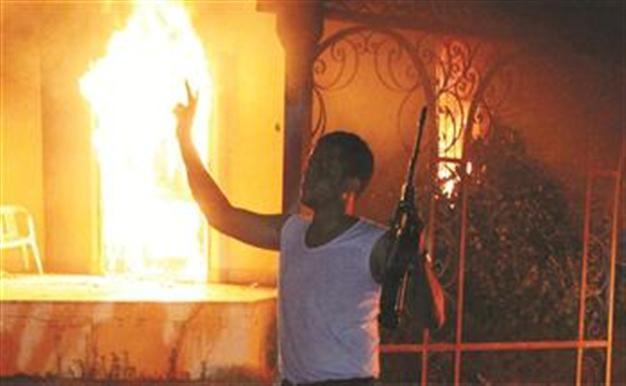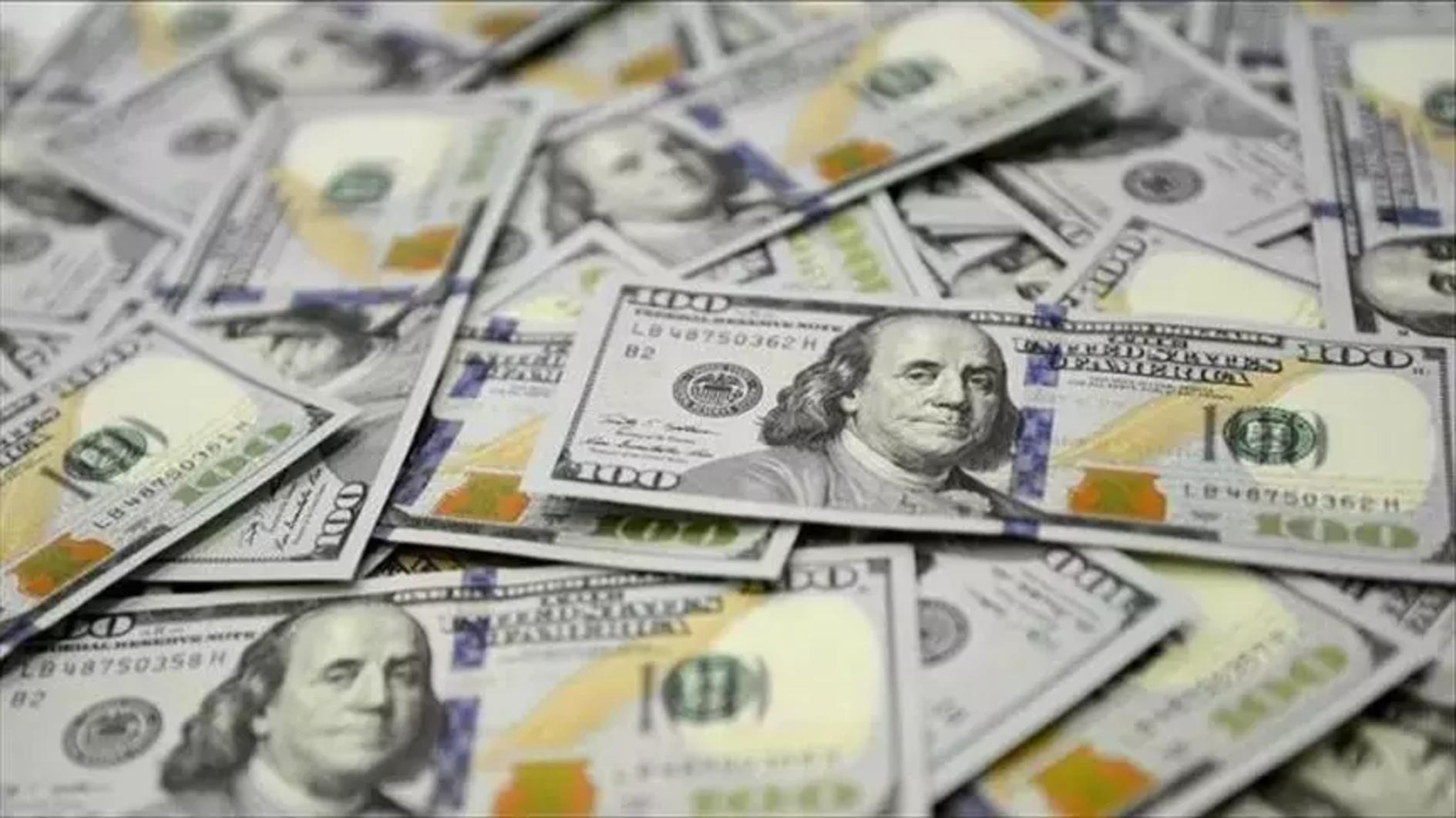CIA's response to Benghazi attack under scrutiny
WASHINGTON - Agence France-Presse

An armed man holds his rifle and stands next to buildings set on fire at the U.S. consulate in Benghazi. EPA photo
Nearly two months after a deadly attack on a US consulate in Libya, a bitter row is still raging over who is to blame for the security breakdown, with the spotlight now shifting to the CIA's role.President Barack Obama, the State Department and the Pentagon have come under fire since the September 11 assault in Benghazi that killed US ambassador Christopher Stevens and three other Americans.
Republican supporters of Obama's rival Mitt Romney pounced on the issue in a hard-fought presidential campaign, keeping it in the spotlight.
John McCain and other Republican senators called for Senate Armed Forces Committee hearings to address whether there was sufficient military personnel in place in Benghazi at the time of the attack.
Due to the clandestine nature of its work, the Central Intelligence Agency was initially spared from scrutiny, but now the spy service and its director, former US Army general David Petraeus, are on the defensive.
The Wall Street Journal suggested Friday that the CIA's fixation with secrecy may have led to confusion over security at the compound and crossed signals with the State Department.
According to the report, the US Benghazi mission was essentially a CIA operation instead of a diplomatic post, and most staff worked for the spy agency.
The State Department believed there was a formal agreement the CIA would provide back-up security in an emergency, but the intelligence service had a different view, the paper said.
The focus on the CIA reflects fresh questions about the spy service's response as well as a turf war inside the government bureaucracy, as officials seek to shield their departments from criticism.
Intelligence officials took the unusual step of giving reporters a timeline of events, which they said showed the CIA acted swiftly and decisively.
"The officers on the ground in Benghazi responded to the situation on the night of 11 and 12 September as quickly and as effectively as possible," a senior intelligence official told AFP on condition of anonymity.
At the CIA compound in Benghazi, dubbed the "annex" in previous reports, news that the nearby consulate building was coming under attack first came in at 9:40 pm (1940 GMT), said the senior official.
A security team of seven agents moved out to secure the consulate, arriving at 10:30 pm after coming under fire. The team evacuated the staff but could not find the ambassador, and then drove back to the annex.
At the Pentagon, Defense Secretary Leon Panetta sent an unarmed surveillance drone over the area, which arrived within about 90 minutes. He also ordered troops from the United States and special operations forces in Europe to a NATO base in Sigonella, Italy for a potential rescue operation.
But by the time the units arrived in southern Italy, the consulate had been torched and ransacked.
"The fact of the matter is these forces were not in place until after the attacks were over," Pentagon spokesman George Little told reporters Friday.
As heavily-armed militants laid siege to the consulate, Secretary of State Hillary Clinton telephoned Petraeus directly to ask for help from the agency, according to the Journal.
In Benghazi, the security team returned to the annex, where they faced sporadic gunfire and rocket-propelled grenades. They returned fire and the attackers withdrew.
Another CIA security team, sent as reinforcements out of Tripoli, arrived at the compound at 5:15 am. Militants then launched a fresh assault against the annex and within minutes, two CIA employees were killed by a mortar round. The intelligence official rejected allegations the agency had failed to coordinate with the State Department.
But, contrary to what some State Department officials believed, the cooperation occurred "without formal interagency arrangements," the official said.
"If you're on the ground in a dangerous place, you partner up. And that's exactly what happened in Benghazi." Officials also defended the role of Petraeus, saying he was "fully engaged from the start," especially in the rescue misison.
Petraeus was faulted by some for choosing not to appear at a ceremony marking the return of the bodies of the slain CIA employees and for attending the premiere of the film "Argo" the day lawmakers grilled the State Department over the attack.
The CIA chief stayed away from the ceremony at Dover Air Force Base because the three officers' link to the agency had been kept secret and attending may have blown their cover, officials told the Journal.
An army general who rose to fame as commander of US troops in Iraq and Afghanistan, Petraeus "receives daily updates on the issue and personally reviewed intelligence reports after the attack," the official said.
"This idea that he is somehow not engaged is baseless."
















